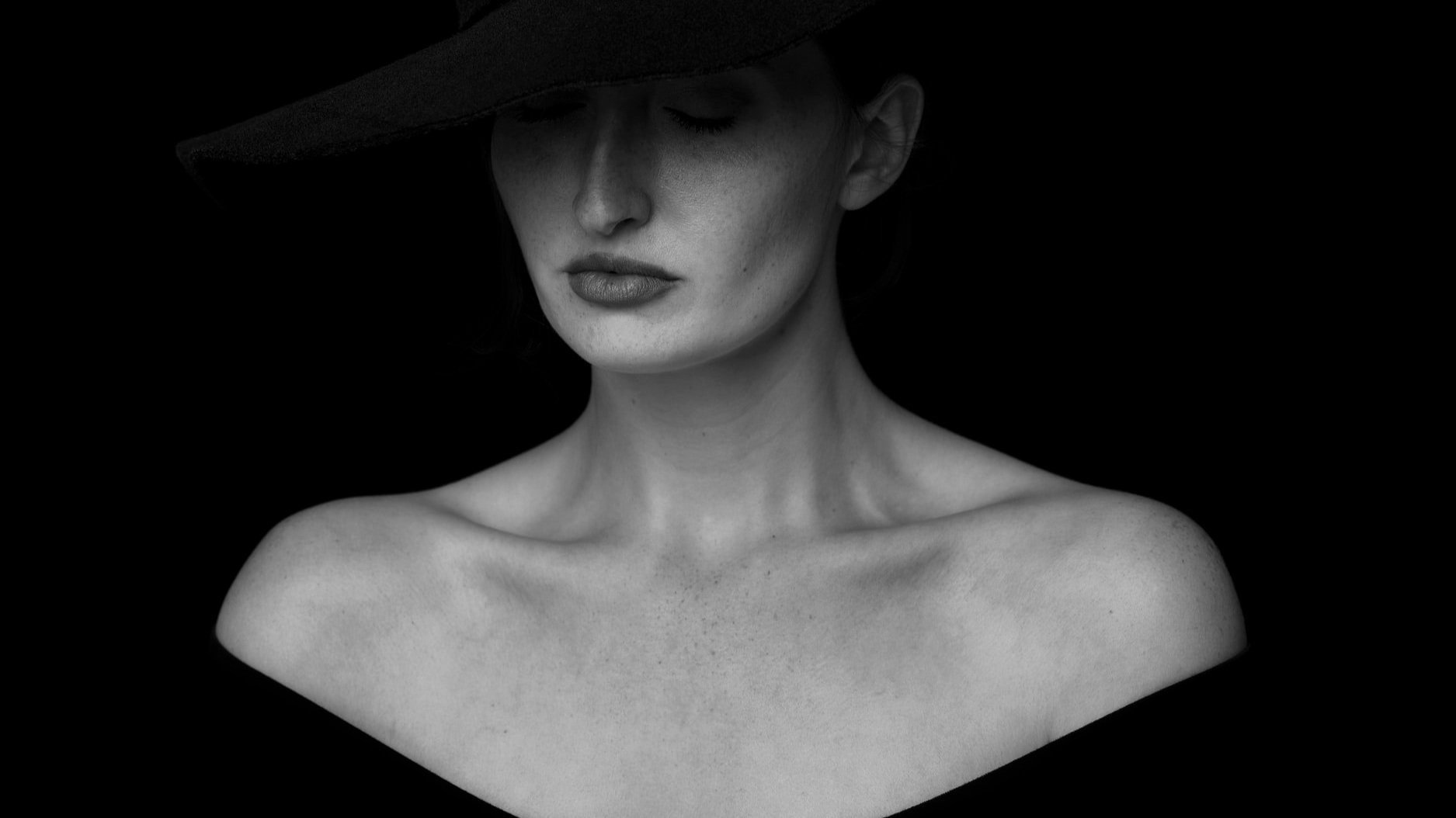The Inheritance
Years ago, I consulted with a local psychic who told me there’d be “problems with an inheritance.” I had no idea what he was talking about and tossed the comment off as random. Little did I know, my ex husband, an eccentric Czech photographer who lived in London, was worth a small fortune. So when he died, I learned that the psychic’s prediction would come true. Because that’s when our family was introduced to a hostile Russian woman named Vera who would harass our family for years.
A FIVE-PART SERIES, BASED ON A TRUE STORY
originally published April 2023 on nicolejeffords.com
Part I: The Inheritance
Many years ago, when I lived in London, I was married to a well-known and eccentric Czech photographer who traveled the world taking photos of ancient sites, monuments, art collections and hard-to-get-to, exotic places that most people have never even heard of. He was a good deal older than I was, and eventually I left him because the marriage had irretrievably broken down. A number of years passed; I moved back to the States and remarried, started a new family with someone closer to my own age. What I didn’t know was that my photographer husband, Werner Forman, had accrued quite a bit of money during his time, much of it parked in a bank in Australia. He was worth a small fortune – who would have guessed?
Gharith Pendragon
During my second marriage, I moved to Austin, Texas and became something of a hippie, joining the ecstatic dance community and exploring my spiritual side, taking Ayahuasca drug trips and smoking a lot of pot. Through someone at dance, I heard of a psychic named Gharith Pendragon (an unlikely but suitable name) and decided to consult him – not that there was anything I specifically wanted to learn; I was just curious. At the time, Gharith lived in a small apartment off Burnet Road. I went to see him and was astonished by his looks: tall, white-haired and awkward, with a birthmark on his forehead that he said came from a bullet wound in a previous life. He was an odd guy, with a habit of swaying his head back and forth like a blind person trying to take in his surroundings with unseeing eyes. Even though he worked with the police on criminal cases, there was something very innocent about him (stuffed animals lined his shelves and a whole wall was dedicated to letters of gratitude from people whose troubles he had helped untangle.) From Gharith I learned there would be problems with an inheritance.
I had no idea whose inheritance he was talking about and tossed the comment off as random. But it turned out Gharith was right.
Before I left the marriage, Werner and I had had a daughter together, a little girl named Jofka, and it was she who would struggle – and struggle mightily – with an inheritance.
Werner was a hoarder. He and I had bought a house together in West Hampstead, a little two up, two down terraced house with the bathroom on the ground floor. When I left the marriage, I left a lot of my possessions behind, but the place was orderly and nicely put together, very attractive to the eye. When I returned to visit many years later, the house was so stuffed with hoarded books, clothing and artifacts that it was impossible to put a foot in the door. Werner himself had been forced to move out into a residential hotel in Golders Green. And there he met the person who caused so much trouble with inheritances.
Part II: The Inheritance
Even when he was older, Werner was a very good looking man, stooped over, yes, but with a chiseled face and a full head of wild gray hair. His voice was soft and heavily accented, and he could have a sharp tongue – a person who didn’t suffer fools lightly. But he was a hoarder and when his house was so full of crap that he could literally no longer enter it, he moved into a residential hotel in Golders Green – an area of London heavily populated with orthodox Jews. (Werner was a secular Jew with no interest in religion.) It was at that hotel that he became involved with a Russian woman named Vera.
Werner Forman
Vera was gorgeous. I only made her acquaintance once, at a lawyer’s office where we gathered to discuss ownership of the house Werner and I had bought together thirty years before. My name was still on the deed, which meant I was liable for taxes on the place. By now, the house that we’d bought for 20,000 dollars in 1973 had become valuable, and I was regularly receiving calls from potential buyers offering a million plus. Vera was tall and slender, with an intense expression in her almond-shaped eyes and a pile of dark hair swooped into a pompadour above her forehead. She wore boots with pointy toes and a tightish dress that brought out the curves of her body. Her voice was as heavily accented as Werner’s. In that meeting at the lawyer’s office, she gave out a hostile vibe.
I had no idea who she was, no idea that Werner had acquired a companion. But he made it clear that Vera was important to him, a business partner privy to all his affairs. It was a weird encounter.
Vera was young, perhaps in her late twenties. (Werner was entering his eighties.) I had the feeling there was romance between them, at least on his side.
I had left Werner on the spur of the moment – almost recklessly – during a trip to the States for the summer. I never ever returned to our little house and most of my possessions were still there – clothing, cosmetics, artwork, jewelry. Later I learned that Werner had never disposed of those things, had just left them where they were. Clearly, I was rash in the way I went about my departure from the marriage – there one day, gone the next. I catapulted myself into my next life without a thought about the sadness or devastation it would bring to my erstwhile husband. While he suffered over the loss of me, his young, heedless, growingly alcoholic wife, I moved to Cambridge, Massachusetts where I fell in with a group of people my own age (one of them a friend from high school) and began to drink excessively, even though I had a job teaching writing to prison inmates that required my full, unbroken concentration. It was a terrible time, one of the worst and darkest of my entire life.
Part III: The Inheritance
Jofka
Werner had a very close relationship with my parents. All three were German speakers and all three had a similar history – Jewish people who had to escape the Nazi regime. My parents fled to New York; Werner went underground, and although he periodically ended up in labor camps, was mostly unscathed. What this meant was that even though I had left the marriage, Werner continued to be close with my parents and continued to be a presence in my life. He was more like an uncle than a father to Jofka, and oddly he was like an uncle to the daughter from my next marriage as well. He loved kids in small doses, but had never wanted any of his own. Sadly, Jofka rarely saw her father. He was stationed in London, while we lived in Massachusetts where I was pursuing a graduate degree in creative writing at Boston University. He would pop in and out of our lives, a charming, playful man we only connected with every so often.
When she was an adult, Jofka would travel to London to see her father. These were not easy visits. Werner loved his daughter deeply, but I think on some level he was afraid of growing too attached to her. They both had quirky personalities. When they were together, they fell in with one another instantly, an unspoken bond between them. It was interesting to see them side by side, both with similar mannerisms in the way they spoke, moved their bodies, expressed themselves. Despite their limited connection, they had the same world view, the same fierce political outlook, the same urgency about fighting the wrongs of society. I guess that has to do with genes.
They were definitely father and daughter – akin, although they lived in different places and hardly ever saw one another.
Jofka & Werner
Fast forward thirty years to when Werner began hanging out with the beautiful Russian woman, Vera, whose acquaintance he had made in a residential hotel. Through a mutual friend, the person who ran Werner’s photographic archive, I knew exactly how the two had met, but I asked him about it anyway. By now my parents were dead and Werner was an old man. I went out for coffee with him during a trip to London. He had always been a big and lengthy talker (loquacious would be the right word). “How did you meet Vera?” I asked, despite the fact that I already knew. “Do you know what Thai massage is?” he replied.
I have to admit I was blindsided and just gawked at him. What the hell was he talking about?
Part IV: The Inheritance
“Thai massage?” I said, a little shocked. We were in a coffee house in Golders Green. It was 2003 and Werner and I had been apart for twenty-eight years. But he still held a modicum of power over me and I found his presence unsettling. By now he had grown somewhat demented and he began a long winded story about how he had seen a woman in a restaurant and been struck by her beauty – so struck that he approached and made her acquaintance. She must’ve told him she was a massage therapist (in her current life, Vera is a PT) because he went on to talk about Thai massage with the built-in assumption that there’d been a happy ending. It was hard to picture romance between the two, but something was going on, if not only a matter of Vera comforting and giving Werner pleasure in the easiest way she could. Anyway, I went with the story.
It took only a brief time for Vera to totally insert herself into Werner’s life. She became his everything, which meant she took over his day-to-day existence, involving herself in his lucrative photography business and gaining more and more power.
I was happy that he had found someone, but more than a little worried that this someone would take advantage of him and his elderly foibles. She acted like an amorous partner, kissing and cuddling him, but here’s the thing: she already had a man in her life and was the mother of a young child. So that made my antennae go up.
Werner’s health was not good. He was in his upper eighties; his mind was fuzzy and he’d had a form of cancer that caused an open sore in his foot that wouldn’t heal. When I spoke with him on the phone, he was pretty incoherent. But I barely ever spoke to him. Jofka sent him numerous emails, but not a single one was ever answered. Later we learned that Vera had taken charge of his emails, and I suppose she didn’t think it was important for him to communicate with his daughter.
So Werner was very removed from us. I was busy with my own life and didn’t pay much attention to what was going on with my colorful ex-husband. Nor did Jofka, who was herself mired in a bad marriage. We knew his health was bad, but still we were shocked when we learned he had died at the age of eighty-nine on February 13, 2010.
I was now the sole owner of the house Werner and I had bought together in 1973. So you can imagine my surprise when I discovered that Vera had hired a van a few short days after Werner’s death, had driven to the house and emptied it of its contents.
Part V: The Inheritance
Vera removed my many possessions (some of them valuable) from the small terraced house that was legally mine, and flogged them god knows where. (I’d never made an inventory so I have no idea what she took.) That was pretty shocking, but I forced myself to remain detached – after all, it had been years since I’d lived in the house. What was more shocking, however, was what we learned next: Werner had made a deathbed will, leaving all his worldly goods and all his money to Vera. There was no mention of a daughter (in fact, it emerged that he had no idea he even had a daughter; in his dementia, he’d forgotten all about Jofka). That meant that the two women, Jofka and Vera, would have to hire lawyers and go to court.
The deathbed will, which Werner in his loopiness had signed, was thrown out as invalid. But, on paper at least, Vera had inherited the entire estate. The decision handed down was that the two girls would have to split the not insignificant wealth Werner had accrued during his lifetime. The house was mine, so I received money from its sale outright. The rest would be dealt with in court.
What ensued was an uneasy entanglement between the two girls who would go on to battle over Werner’s photographic archive as well as the rest of the estate. Jofka flew to London for her father’s funeral. There she encountered Vera, veiled from head to toe as if she were in deep mourning. Jofka did her best to ignore her. But there was something of a skirmish over the ashes. Jofka badly wanted them – it was her father, after all. But Vera had possession of Werner’s ashes, and it was rumored that she tossed them in the river. (Whether this is true or not, I will never know.) The upshot of the whole thing was that Jofka and Vera would be stuck together for years. They would have to form a truce of some kind, albeit an uneasy one.
And so, because of a chance encounter in a residential hotel, Jofka lost half her inheritance.
Her father, smitten with a woman who swooped in and installed herself in his life, had forgotten about her existence. He was an old, ailing man who’d gone completely gaga, and no longer was cognizant of his own history. But I knew his history, and I knew that at an advanced age, he’d fallen in love with a young, beautiful woman who’d blurred his senses, and, like a siren, had made him forget all that had come before. In other words, he – and by association, all of us – had been hoodwinked, a story of the ages.












